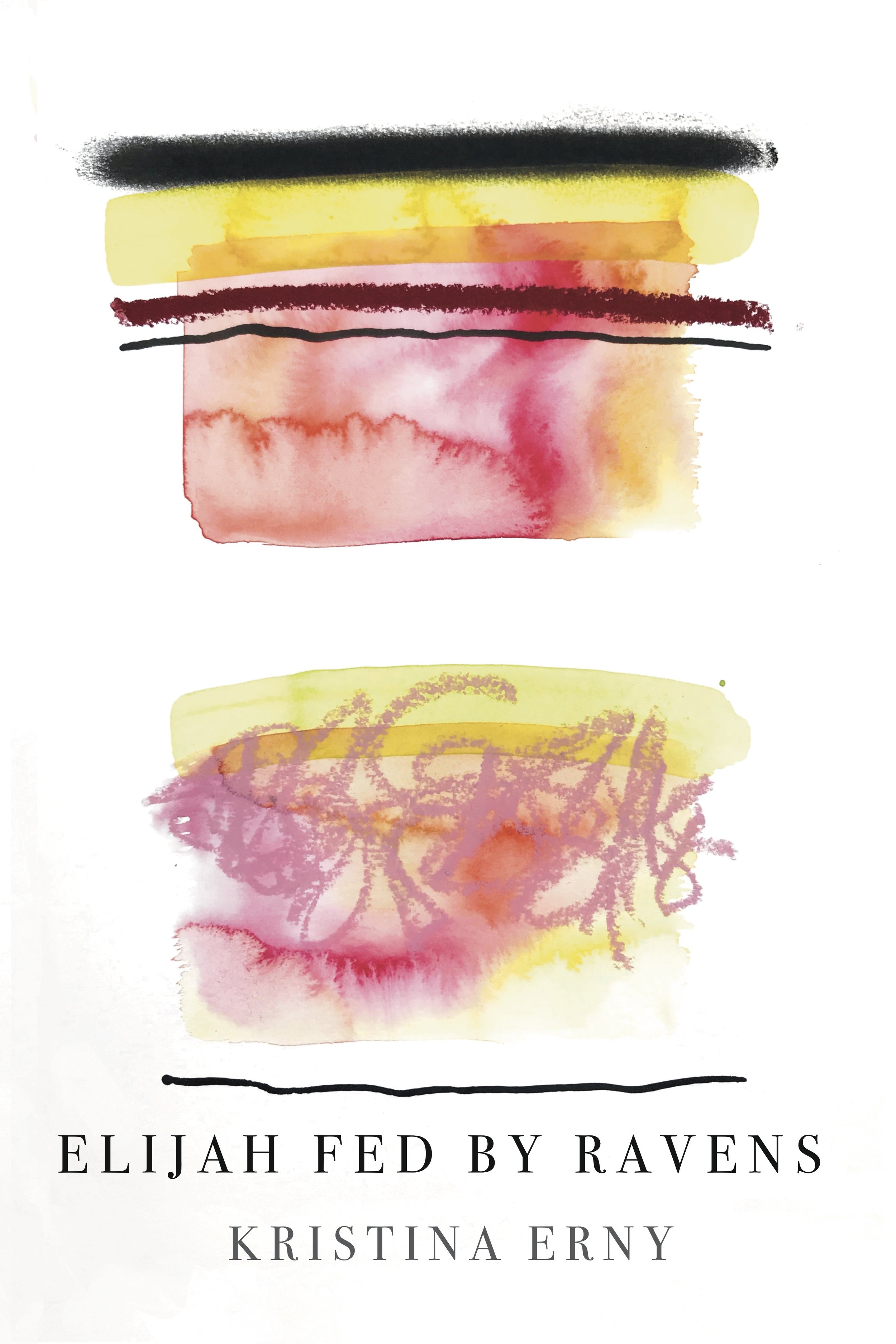elijah fed by ravens
by kristina erny
In her full-length debut, Kristina Erny questions whether sustenance will come in the desert places in her faith and what it might mean to journey forward anyway. In meditations set within imagery in 1 Kings, Erny deftly borrows the voices of long-dead prophets, widows, and ravens to explore her own contemporary faith-life, becoming the angel nudging herself forward.
Everyday human moments of grief, longing, desire, and doubt sit alongside celebrations of simple life. Empty boxes, kids’ drawings, buzzards and drives to school become laced with the Divine. They are the remaking of a world in which the smallest of things can be holy and joy comes from watching for the bread that shows up in the most bloody of beaks. The poems do not deliver answers, but practice an unfolding of new questions. They cry out: In the everyday we are resurrected and made new.
praise for Elijah Fed by Ravens
In Kristina Erny’s poems, the mythic and commonplace live side by side — the prophet and the styrofoam to-go container, the bloody beaks of angels, the overstuffed sock drawer. Ancient stories are retold and reconsidered, clarified, confused, and resurrected, and what emerges is a tenacious mind in conversation with the formative (and formidable) past and the subjective experience of God. Erny asks, “How can we live with ourselves / when everything has so many consequences?” Do we find answers in modernity, in motherhood, in marriage? Do we go with Elijah to the holy mountain? Can we? These beautifully haunting poems remind that not knowing is a kind of song, and “some songs sing themselves.”
— CHRISTOPHER NELSON, author of Blood Aria and editor of Green Linden Press
Elijah Fed by Ravens is an inventive and profound book full of music, with precise and passionate language that meditates on the importance of both nature and storytelling in our lives.
— SILAS HOUSE, Poet Laureate of Kentucky
Kristina Erny announces her central trope of sustenance in her title Elijah Fed by Ravens and confirms for us page after page that poetry is one of the things that can nourish us. In these deeply empathetic poems, the use of poetry to question and console — to help us better see the world and each other — serves as an implicit response to one of the book’s queries: “Why are we still here?” In a recombinatory form she calls a resurrection, Erny suggests that perhaps what we feared no longer exists simply exists in new ways, a hopefulness centered on transformation and acknowledgement that one must, paradoxically, sometimes un-become to become. Using an array of compositional methods, from the beat in her “Ravens” sequence that recalls the ecstatic rhythms of Gerard Manley Hopkins to the linguistic crosses she makes with the intersecting vertical and horizontal lines of her acrostics, Erny playfully affirms that the body of the poem is indeed ensouled, and I think those of us who spend time with these poems will answer resoundingly, ‘yes, yes, we can,’ when we arrive at the lines, ‘I am/ eager, and/ I hope you can hear me.’
— DR. KRISTI MAXWELL, Associate Professor of English, University of Louisville
In Kristina Erny’s Elijah Fed by Ravens, prophecy is poetry, but it is also power. The book deploys a variety of poetic structures, from litany to contrapuntal to acrostic, showcasing the rigor of Erny’s formal imagination. Through this, and more, Elijah unveils — “apocalypse,” in its original sense — the potential for language both to shape a reality and to remake it in a new and brighter image.
— JOHN JAMES, author of The Milk Hours
about the author
Kristina Erny is a third-culture poet who grew up in South Korea and elsewhere abroad. She holds an MFA from the University of Arizona. Her work has won the Tupelo Quarterly Poetry Prize and the Ruskin Art Club Poetry Award. Her poems have appeared in The Los Angeles Review, Yemassee, Blackbird, Southern Humanities Review, and Tupelo Quarterly, among other journals. She lives with her husband and kids in Shanghai.


